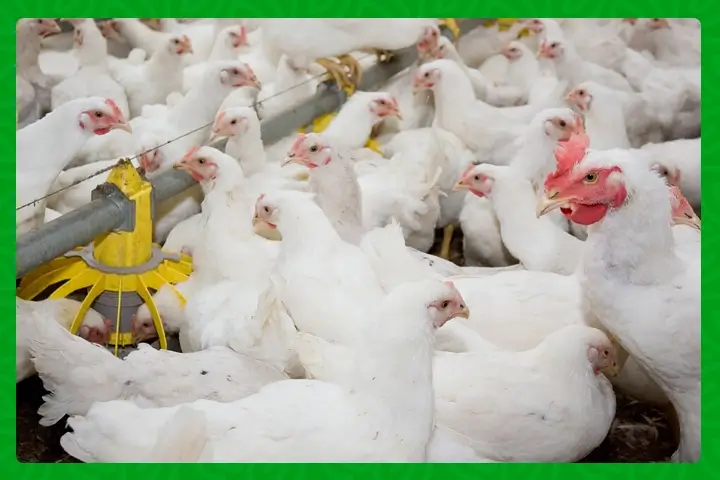
A clear policy designed to grow local poultry
On Friday, October 3, Burkina Faso announced a temporary halt on the importation of broiler chicks. The Ministry of Agriculture, Animal Resources and Fisheries confirmed that all import permits for chicks bred for meat production are suspended until further notice. The Directorate General of Veterinary Services will not issue any new authorizations while authorities assess domestic capacity.
This is a deliberate, strategic move. Officials say domestic hatcheries can meet current demand and that the pause will create room for local producers to expand and for new investors to enter the market. In short, the government is betting that building local capacity will keep more value inside Burkina Faso and reduce reliance on foreign suppliers.
What the ban covers and why it matters
The suspension applies to all broiler chicks intended for meat production, irrespective of breed or genetic strain. That makes the measure broad and unambiguous, and signals a serious push toward self sufficiency in a sector that accounts for nearly half of the country’s livestock. Policymakers describe the move as part of a wider effort to strengthen food sovereignty and support domestic agribusiness.
Why does this matter for ordinary people? Poultry farming is central to many rural livelihoods. Increasing the capacity of local hatcheries means more business for local suppliers, more jobs at farms and hatcheries, and a shorter, more resilient supply chain for butchers, retailers and consumers.
The numbers behind the decision
Between 2020 and 2024, Burkina Faso imported an average of about US$736,000 worth of broiler chicks per year, with imports peaking in 2024 at roughly US$1.06 million. Major suppliers included Morocco, Belgium, France and Turkey. Those figures show the scale of the opportunity to substitute imports with local production and to capture value that currently leaves the country.
Poultry is already a significant agricultural pillar in Burkina Faso. The country produces more than 140,000 tonnes of poultry meat and about 6,000 tonnes of eggs annually, and poultry contributes several percentage points to agricultural value added. Strengthening hatchery capacity could therefore have an outsized effect on rural incomes and on the national food supply.
Short term friction, long term gain
Any sudden policy shift creates a period of adjustment. Hatcheries will need to scale up production, investors will need clarity and producers may face temporary price movements as the market rebalances. Government officials acknowledge these short term adjustments and have framed the ban as temporary until a follow up review confirms consistent domestic supply.
If managed well, the short term disruption can become a catalyst for long term gains. Local hatcheries that expand will invest in better infrastructure, biosecurity and genetics. Feed makers, transporters and processors will see predictable demand. And consumers will benefit when more of the value chain is anchored inside the country.
What success looks like
Success will be clear and measurable. It means local hatcheries reliably supplying quality day old chicks at competitive prices, fewer imports of broiler chicks, and an expanding poultry sector with better-paying jobs. It also means stronger biosecurity controls and more developed upstream inputs such as feed and veterinary services. Over time, a thriving domestic hatchery industry can lower production costs and help stabilize meat supply and prices.
For farmers and smallholders, success will translate into easier access to chicks, more predictable production cycles and higher returns on investment in housing and feed. For consumers, it will mean steadier supplies of affordable chicken. For the economy, it will mean more of the poultry value chain contributes to domestic growth.
Risks and the roadmap ahead
The biggest risks include a failure to scale production quickly enough, quality shortfalls among new hatchery suppliers and potential price spikes during the transition. To avoid those outcomes, public and private stakeholders must coordinate closely. Investment incentives, technical support for biosecurity and genetics, and transparent timelines for the review process will be essential.
The government says the measure will remain until an assessment confirms local production can consistently meet demand without imports. That gives authorities a clear benchmark to lift or adjust the suspension, while signaling to investors that priority will be given to domestic capacity building.
A policy with wider implications
Beyond chicks and hatcheries, the move is a message about economic direction. It signals that Burkina Faso intends to capture more of the value chain for its agricultural goods, to protect local producers and to create opportunities for private investment. If successful, the policy could inspire similar initiatives in neighboring countries looking to reduce import dependence and build resilient food systems.
Final thought
Halting broiler chick imports is a bold step. It is also a reminder that food policy can be more than a short term reaction. When designed and executed with care it can be a lever for rural jobs, strengthened value chains and greater national resilience. Burkina Faso now faces the hard task of turning policy into productive capacity. If it succeeds, the benefits will ripple far beyond hatcheries and into the daily lives of millions.
Stay updated with the latest farming tips and agriculture industry news from Africa by subscribing to our newsletter. Don’t miss out on valuable insights and updates. Follow us on Twitter, LinkedIn, and Facebook to join our farming community and stay connected with us.


















